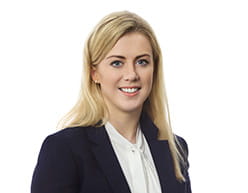Trowers & Hamlins has completed its series of summer vacation schemes which featured legal hackathons using the BRYTER no-code automation platform.
The vacation scheme students focused on building prototype apps for responsible business using BRYTER in two sessions on June 24 and July 8.
This is the second consecutive year the firm has hosted a hackathon for students with BRYTER, following the hugely successful feedback to last year’s hackathon, which focused on digital innovation and delivering efficiency using no-code technology.
Creativity, business sense, and teamwork
For the next generation of lawyers to succeed, they will need to embrace legal technology. Trowers invests in more comprehensive training, focusing on a mixture of business skills and hands-on experience using legal technology to equip its lawyers to create scalable digital client solutions and to innovate processes to reduce manual tasks.
These hackathons provided an opportunity for summer scheme students to demonstrate their creative thinking skills and teamwork. For students who are also new to the business of law, the hackathon also encouraged them to think about how they would create solutions for clients and deliver value efficiently.
As a powerful but user-friendly point-and-click platform, BRYTER allows students to quickly create functional apps, turning their ideas into automated legal workflows. The 25 participants on each day were split into 5 teams to build prototype solutions. Following 2.5 hours of training, students were equipped with the skills to begin building their apps on BRYTER.
Reaching responsible business goals
With the growing prioritisation of responsible business practices, the challenge statement for the hackathon asked participants to consider how they can provide ESG solutions to clients that can be embedded into their strategy and help them achieve their responsible business goals.
Responsible business is a priority for Trowers, who are helping organisations across sectors globally do this by offering specialist advice and expertise for clients to adapt how they operate and to ensure that they have the flexibility, strength and resilience to thrive now and in the future. Trowers help clients to mitigate their ESG risk by identifying where their business going to be exposed, where they are behind competitors and the potential regulatory or market shifts that are going to be impacting their business.
Judges and facilitators
The events were judged by Tim Nye, Partner - Head of Section and Innovation Sponsor; Richard Elson, Director of Information Services; Janet Scoones, Director of Information and Knowledge Management; and Sam Haines-Nutt, Head of Bids.
The solutions were evaluated based on originality; how well the idea responded to the challenge statement; the quality of the presentation and build/end product; the utility of the use case (in terms of how well it solves a business need); and the commerciality of the created App.
Awards and recognitions
The winning team from the first event created an 'ESG Readiness Tracker': Alina Kazmi (Ideator), Benjamin Forbes (Presenter), Alice Spencer (Builder), Emily Williams (Ideator), and Zoha Akram (Presenter) created a solution focusing on how businesses could reduce energy use and formulate contingency plans to tackle climate change and energy generation and procurement. Within the no-code solution they built, the tracker would give an initial rating for clients, along with suggestions for improvement, and offer a time and cost-efficient solution.
The winning team for the second event created the Trowers' TREE (Trowers’ Reduction by an Environmental Evaluation): Samuel Hopkins (Ideator, Presenter), Tara Reeves (Ideator, Builder), Shannon McRoberts (Ideator, Presenter), Tabassum Bashir (Ideator, Builder), and Ted Bennett-Cronk (Ideator, Builder) created a tool to aid clients who manage commercial loans, to collate data regarding their potential customers' environmental standards by considering a variety of relevant measures.
For the first hackathon, Paul Whittington (Ideator, Builder) and Ross Castle (Ideator) won the Outstanding Individuals awards for their excellent teamwork and collaboration, and the Best Build was won by Natalia Zielinska (Builder) for her quick execution of the build.
For the second hackathon, Charlotte Tucker (Builder, Presenter) and Kuran Phull (Ideator, Presenter) won the Outstanding Individual awards for their contribution to their teams; the Best Build was awarded to Georgina Oates (Ideator, Builder).
Anna Browne, Head of Innovation and Legal Technology at Trowers & Hamlins, says:
“An increasing part of the skillset of future lawyers is digital competency and the hackathon gives our vacation scheme students the opportunity to get hands on experience using user friendly tools like BRYTER to showcase their skills. We have been really impressed by the commerciality of the client centric ideas that are coming through from our future trainees.”
Sam Spivack, Managing Director of Legal Partnerships at BRYTER, says:
“We’re pleased to partner with Trowers & Hamlins again to train their summer vacation scheme students to think differently and approach problem solving using our no-code technology. Trowers & Hamlins are investing heavily in innovation and legal technology and this hackathon demonstrates that Trowers & Hamlins are on the front foot when it comes to attracting new talent and digitally upskilling its future lawyers. We have been impressed by the originality and quality of the solutions and pleased with the speed by which the participants have used our platform. We’re looking forward to working with the firm on more opportunities like this one soon.”
